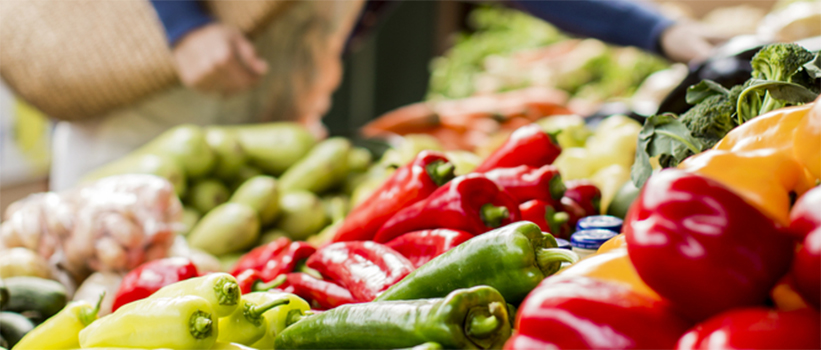Organic Fruits and Vegetables: Are They Worth the Expense?
Becky Jay and Arete Pappas BIDMC Dietetic Interns
MARCH 30, 2016

When strolling down the produce aisle of the supermarket, you may find yourself asking a difficult question: Organic or conventional? The answer is trickier than it seems. Yes, organics likely contain fewer pesticide residues than their conventionally grown counterparts, but they can also cost substantially more. So, what’s the right choice? Here are a few things to consider.
What does “Organic” really mean?
Organic fruits and vegetables are grown or produced according to the organic standards of the United States Department of Agriculture (USDA). This means that to label their fruits and vegetables as “organic,” farmers must comply with the USDA’s regulations — only using approved substances and engaging in sustainable agricultural practices.
Is organic produce more nutritious than non-organic?
The jury is still out, but according to a recent article , researchers from Stanford University concluded that, on average, organic produce does not have higher vitamin content than conventional produce. “Organic” provides insight regarding how the food is grown, not the food’s nutritional quality — keep in mind, a cookie made with organic butter and sugar is no healthier than its non-organic counterpart.
Are there any fruits or vegetables that might be worth buying organic?
You bet! The Environmental Working Group (EWG) ranked fruits and vegetables according to their concentration of pesticide residues. The produce with the highest concentrations of pesticides, even after washing, are known as the “dirty dozen,” and the produce with the lowest concentrations of pesticides are known as the “clean 15.” Apples, peaches, and strawberries are some of the “dirtiest,” meaning these might be worth buying organic. And avocados, sweet corn, and cabbage are ranked among the “clean fifteen,” meaning these may not be worth buying organic.
How can I reduce my exposure to pesticides if I can’t regularly afford organics?
First, it’s important to remember that pesticides found in conventional fruits and vegetables are within a safe and approved limit. But if you are looking to minimize exposure, here are a few tips:
- Make sure to wash all produce under running water and dry with a clean cloth or paper towel.
- Scrub firm produce with a brush, and rub soft produce with your hands.
- Peel produce when possible — however, keep in mind that this can reduce nutritional value since skins are often nutrient-dense.
- Consider starting a home garden or participating in a community garden.
- Shop at a local Farmer’s Market and talk to the farmer about their farming practices.
- Eat a variety of fruits and vegetables to help minimize increased exposure of a single pesticide.
So regardless of whether you choose organic or conventional, it’s important to remember what mom always said: Make sure to eat your fruits and vegetables!
